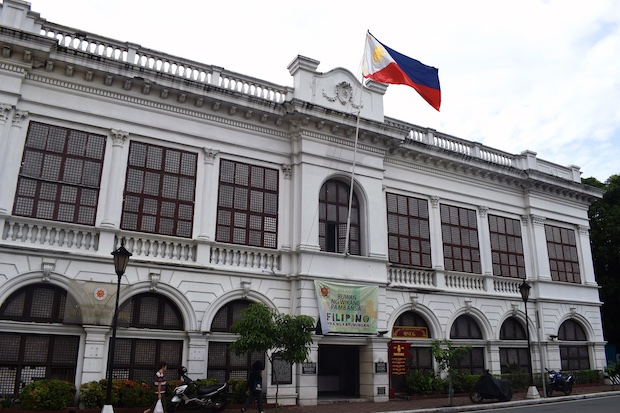
The office of the Komisyon ng Wikang Filipino in Manila. (Photo from the KWF Facebook account)
MANILA, Philippines — The Komisyon sa Wikang Filipino’s (KWF) order to ban “subversive” books in schools and public libraries is an attempt at “thought control” and a violation of freedom of expression, according to Albay Rep. Edcel Lagman, who vowed to push for a House probe of KWF Memorandum No. 2022-0663, which banned the distribution of materials, that “incite to commit terrorism.”
“Memorandum No. 2022-0663 dated Aug. 9, 2022 of the KWF banning five books in Filipino as ‘subversive’ is a liquidation of the freedom of expression, which is enshrined and protected by the Bill of Rights,” said Lagman, an independent opposition lawmaker.
In a statement on Saturday, he slammed the directive as “patent thought control and unmitigated censorship” and that “the memorandum is an outlaw, which must be slain on sight.”
He will be asking the House panels on human rights, basic education and culture and higher and technical education to conduct a joint hearing on the “unlawful memorandum.”
Lagman explained that the KWF, as created by Republic Act No. 7104, has “no power whatsoever to ban and censor written works in Filipino.”
Lagman stressed that the KWF is “not an adjunct of the National Task Force to End Local Communist Armed Conflict” nor an “extension of the Anti-Terrorism Council.”
“The action of the KWF of banning the subject books for purportedly violating Section 9 of RA 1147, or inciting to commit terrorism, is an unwarranted sanction by an unauthorized agency without trial and due process,’” he added.
The Commission on Human Rights (CHR) also urged the KWF on Saturday to reconsider its order in consultation with “relevant stakeholders, as well as to go into a further inquiry on the contents of the said publications.”
The order was from Commissioners Carmelita Abdurahman and Benjamin Mendillo Jr., but even KWF Chair Arthur Casanova defended the books and said they were all reviewed by the commission.
Jacqueline De Guia, executive director of the CHR, said “caution must also be exercised in interpreting the provisions of the Anti-Terrorism Act, especially if it may already be overreaching and results in possible violation of rights rather than protecting them.”
RELATED STORIES
CHR to KWF: Be cautious in interpreting Anti-Terrorism Act
Authors unbowed after gov’t ‘purge’ of books
KWF chair, language orgs decry red-tagging of books, authors

